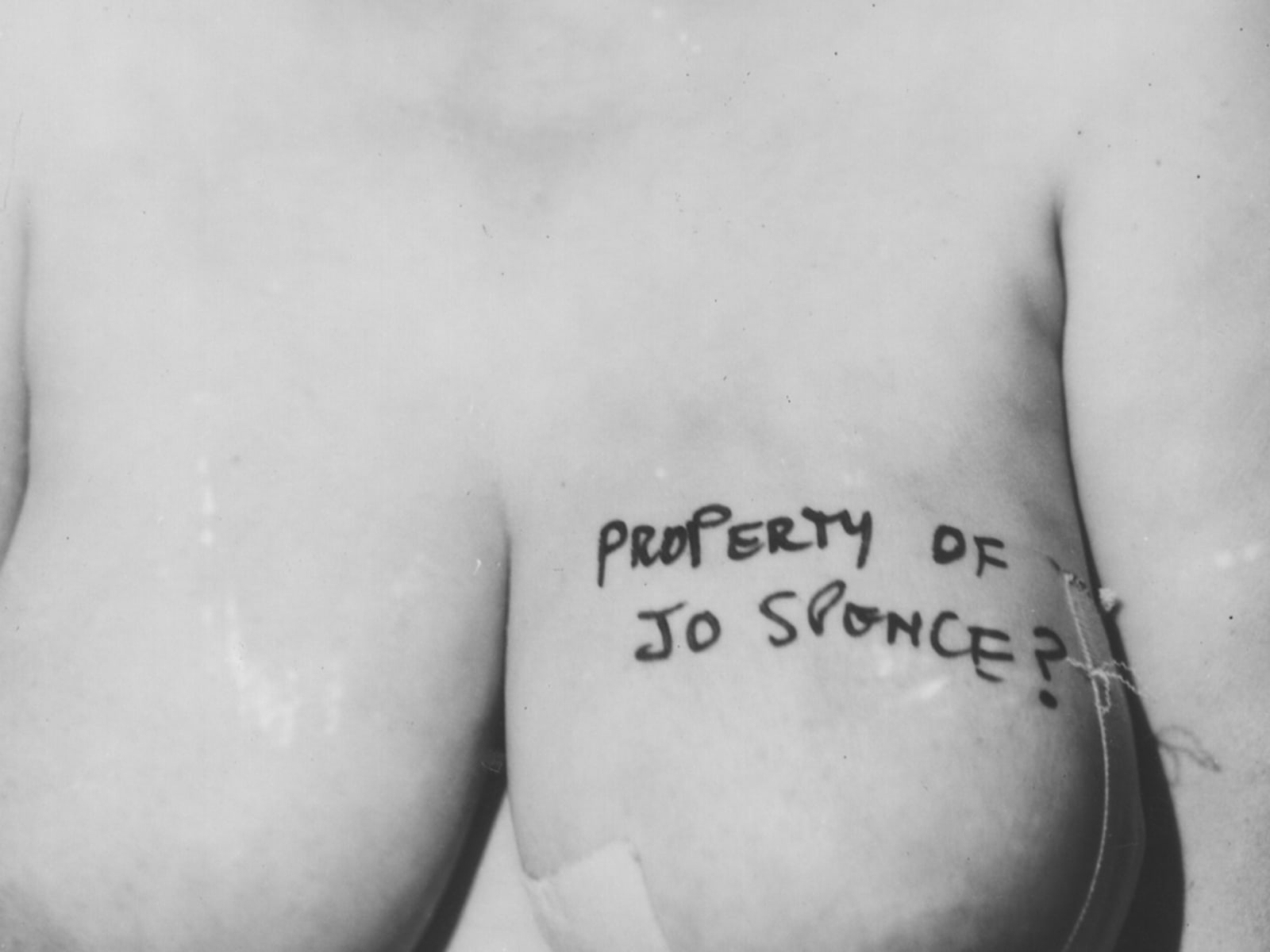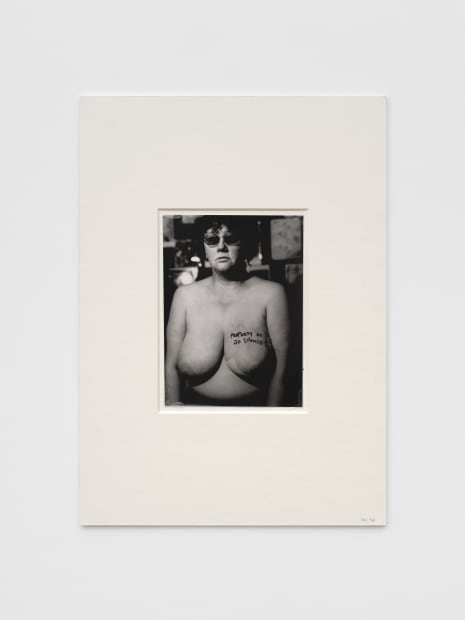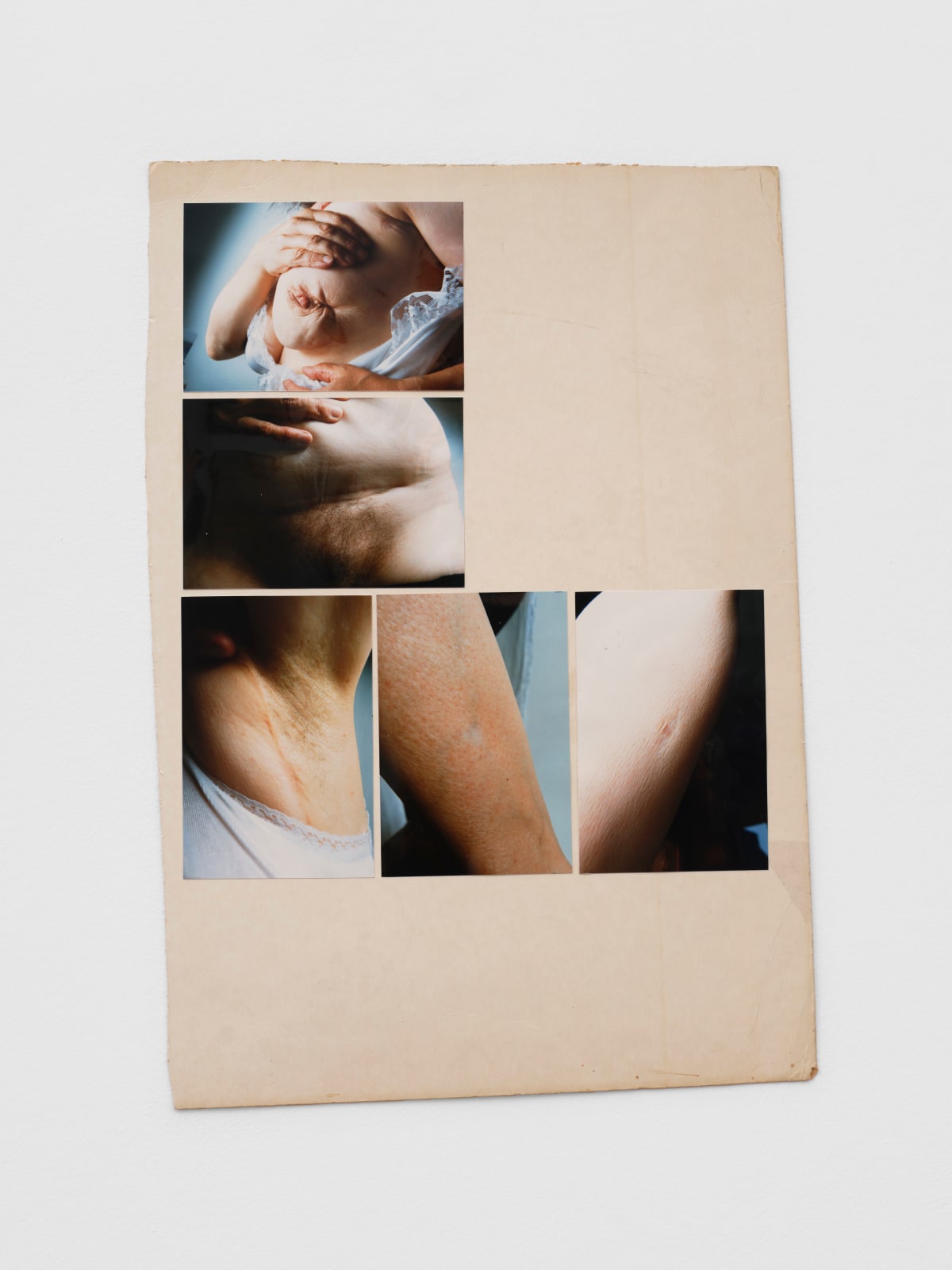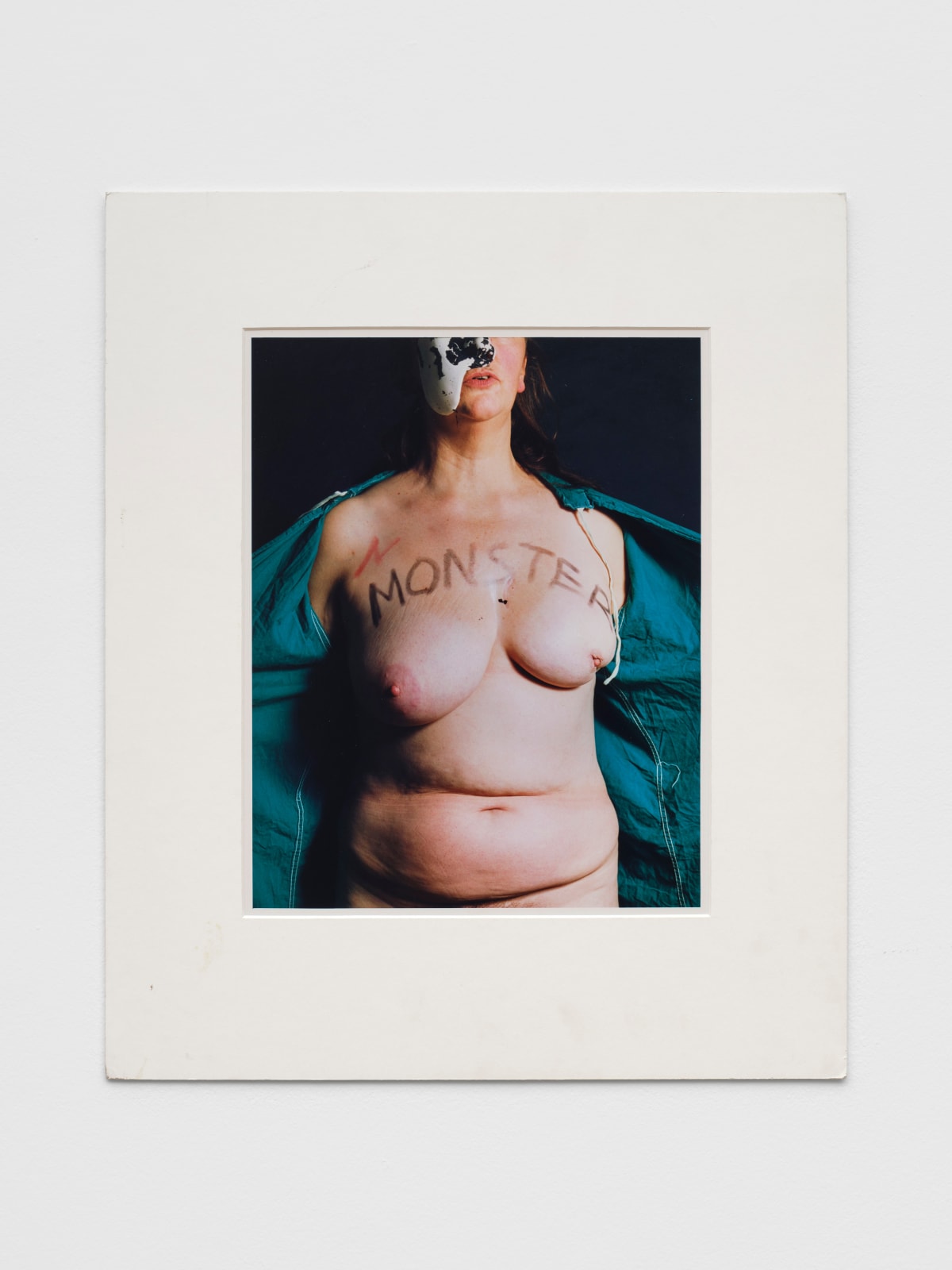-
-

JO SPENCE
A Picture of Health: Helmet shot, 1982
Collaboration with Terry DennettBlack and white photograph, vintage22.5 x 15.2 cmSOLD -

Jo Spence
A Picture of Health: Property of Jo Spence?, 1982
Collaboration with Terry DennettBlack and white photograph, vintage27.4 x 20 cm -

jo spence
Photo Therapy: The end of my anal phase, 1984
Collaboration with Rosy Martin4 colour photographs mounted on artist cardEach photo: 18 x 12.5 cm
Card: 40 x 30 cm -
-

Jo spence
Narratives of Dis-ease: Expunged, 1990
Collaboration with Tim SheardColour photograph, vintageSheet 26.7 x 21 cm
Image 25.5 x 18 cmSOLD -
-

Saltoun Online












